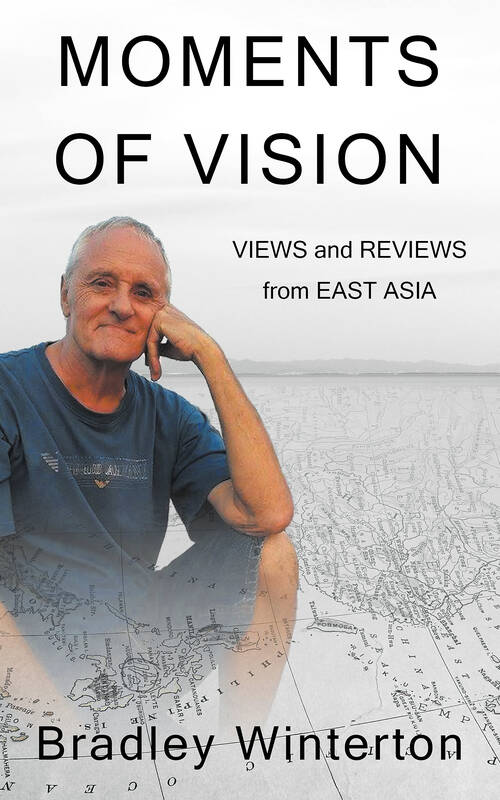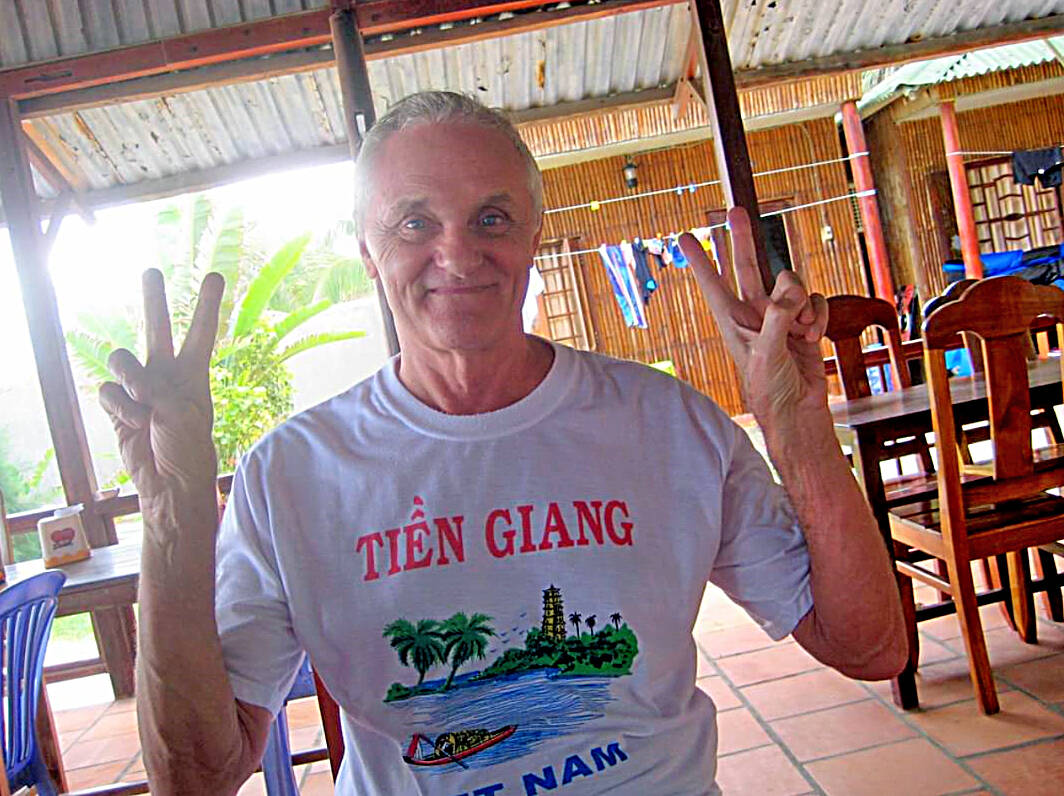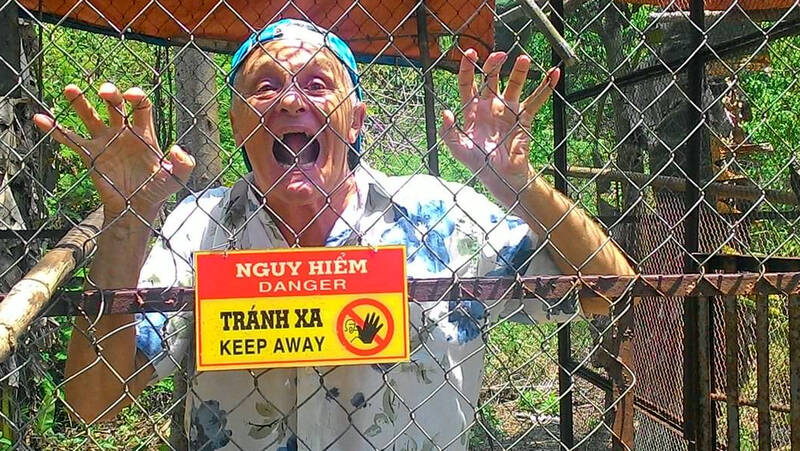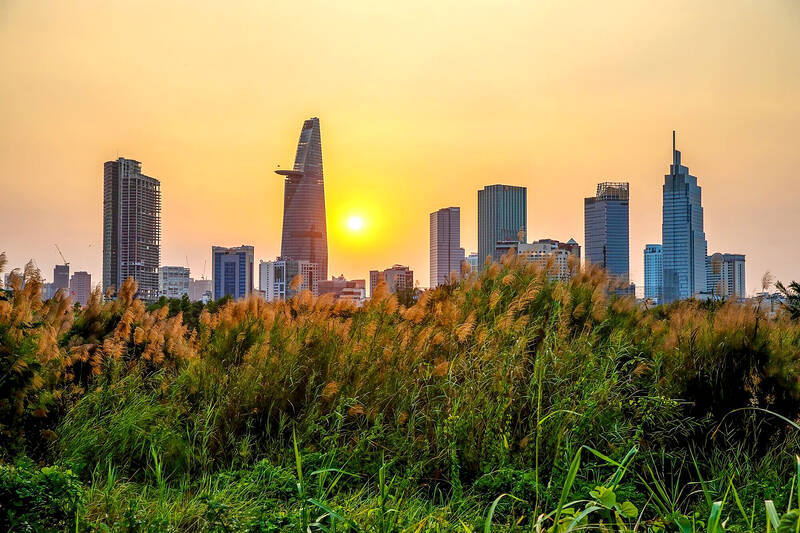To review a colleague’s memoir which has been published posthumously is an intensely bittersweet and personal thing. It is both an act of mourning at the loss of a writer to whom I looked for inspiration and who always greeted me with a kind word. At the same time, it is a way of smiling through tears in relating the triumphs and follies of a life I had long suspected but until now had not fully known.
Bradley Winterton, the British expat writer, opera lover and bon vivant, who passed away on June 1 in Ho Chi Minh City (Saigon) at age 86, was one of the most prolific Asia-based reviewers of English writing over the last four decades. The famed British author Iris Murdoch, after spending a week with him in Bangkok in 1995, declared, according to Winterton’s own immodest telling, that he was “a god in exile.”
From the late 1980s, Winterton wrote hundreds of book reviews, letters and articles for Hong Kong’s South China Morning Post, the Financial Times, Times Literary Supplement, Taipei Times and Saigon Times, as well as two books on opera in Macau, travel guides including Insider’s Guides to Thailand, Bali and Japan, and an underground gay novel.

Most special, perhaps, through his countless reviews, he became a rare champion of his fellow Asia-based writers, small publishers and the continent’s emerging literature on queer sexuality. Following his death, a common social media tribute from his fellow authors was the simple statement, “He reviewed my book.”
A collection of Bradley Winterton’s writings, Moments of Vision: Views and Reviews from East Asia, has now been published as a free ebook by Plum Rain Press, a new Taiwan-based publishing house that’s recently split off from the 2014-established Camphor Press.
PAINTINGS IN A GALLERY

Photo courtesy of Bradley Winterton’s Facebook page
The volume sets down Winterton’s selected writings almost like paintings in a gallery, which are interspersed with the author’s personal recollections, as if he’s giving the reader a guided tour of his literary oeuvre. This is most fascinating in his early years, where he offers the most reflection and autobiographical detail.
Winterton was born in 1938 and raised in the UK’s Midlands. After studying English literature at Oxford’s Lincoln College, he took a position lecturing on romantic literature and modern drama at North-Western Polytechnic College in North London.
At the same time –– the radical mid-1960s –– he began writing reviews of experimental theater for Time Out London. For the next two decades, his life would oscillate between teaching, journalism and the theater. He also lived on a commune for a year in England’s Lake District.

Photo courtesy of Bradley Winterton’s Facebook page
Winterton was especially drawn to experimental artforms. He once posed naked, painted entirely blue and holding a large knife against his genitals, as part of a performance art piece in an Amsterdam art gallery. He also briefly joined the theater company of groundbreaking director Robert Wilson in Paris. And later in Bristol, he launched his own theater company, The Crystal Theater of the Saint, to pursue a style he called “eclectic surrealism.”
In 1984, at age 46, a travel writing assignment for the Times Educational Supplement sent Winterton to Asia for the first time –– Singapore, Bali, Malaysia, Thailand, India and Nepal. The eastern hemisphere filled him with sudden inspiration, and in 1986, he recalls, “Asia was by now exerting a stronger pull even than theater, and it was at that point that I bought a one-way ticket to Hong Kong.”
“Hong Kong looked to me, fresh out from England,” he writes, “like the Western Isles of Scotland spread out under a torrid tropical sky. Rocky islands rose almost sheer from the intensely blue water of the South China Sea, the mountains of China shimmered in the haze and the tower-block city receded in our generous wake.”

Photo: Bloomberg
Very quickly, however, Winterton developed a preference for the Latin-tinged dissipation of Macau. In one of several fascinating encounters with literary celebrities –– these include meetings with Iris Murdoch, the Dalai Lama and gay writer Alan Hollinghurst –– he recounts an introduction to the Portuguese colony by one of its preeminent historians, British writer Austin Coates, whom Winterton found rather sauced at the time. Arriving at the writer’s flat in Hong Kong’s mid-levels, he sat with Coates as he shouted into his kitchen, “Whether or not I’ve had enough is beside the point — our guest would like a drink!”
Becoming a regular writer for the SCMP, Winterton chose to live on Lantau Island, then a laid-back hamlet of journalists and artistic types. He found inspiration in the way expatriate bohemianism offered a sort of return to innocence, and noted this in the 1989 Insiders Guide to Bali, where he wrote of Bali’s first expatriates of the 1930s that they had encountered Balinese whose “sexual life was unspoiled by repression or guilt, they practiced art naturally and without thought of gain and their religion harmonized with nature.”
In the current memoir, this guidebook selection has been retitled Moments of Vision and further lends itself as the title of the entire volume.
BOHEMIAN IN ASIA
Winterton even went so far as to undertake serious study of “bohemianism as a cyclic phenomenon” in the English department at Hong Kong University, earning a Masters of Philosophy there in 1995.
His thesis traced the bohemian elements of pacifism, vegetarianism, free love and the experience of the exotic from the original Parisian Bohemians of the 1830s to the British Aesthetic and Decadent Movement of the 1890s, the American expatriates in 1920s Paris (Hemingway, Stein, etc), the Beatniks of the 1950s and the hippies of the 1960s.
John Addington Symonds, “Victorian England’s only proponent of gay rights,” was a figure of special focus in Winterton’s scholarly treatise and was chosen “because he was gay and sexual dissidence had always been a part of Bohemianism.”
Winterton was gay, but he did wear it on his sleeve. He managed to be at once a traditionalist and fantastically open-minded, and he disdained the idea of making others uncomfortable by raising the issue of whom one cares to sleep with. He nevertheless consistently advocated for gay writers and delighted in their naughtier writings. A highlight is his interview with Alan Hollinghurst, whose novels “almost constitute a history of the British gay experience during the 20th century.”
One of Winterton’s most memorable book reviews examined Decadence Mandchoue, the scandalous memoir of British homosexual Edward Trelawny Backhouse, who during the late 1800s entered the imperial court in Beijing as an English tutor, then quickly became a sexual partner for the then 67-year-old Empress Dowager Cixi (慈禧太后). Long disparaged by British historians as “fantasy,” Backhouse’s memoir was only finally published in 2011 by an independent Hong Kong publisher. Winterton delivered a stirring defense, both in a review for the Taipei Times and a later letter to the Times Literary Supplement.
Winterton said scholars dismissed Backhouse’s description of gay life in late imperial Beijing out of “a long tradition of heterosexuals refusing to believe the sheer numbers of contacts many gays have.”
“A man who has had two or three sexual contacts in a lifetime can’t easily credit someone who freely admits to thousands,” Winterton opined.
PLUM RAIN PRESS
The compilation of this posthumous memoir was guided by Plum Rain Press co-founder John Ross, who described the four years of edits, revisions, additions, and misplaced documents as “a messy process.”
Ross had been in correspondence with Winterton since 2002, and this picked up in 2014, once Ross and two partners began publishing Asia-themed books through their newly established Camphor Press; Winterton regularly reviewed Camphor’s new releases.
The idea of collecting Winterton’s writings into a book emerged around 2020 in emails traded between Ross and Winterton. Winterton was already 82 and living in Saigon (“It seemed to me to be Old Asia,” he writes), where he’d moved from Taipei in 2009, and began collecting his writings into long document files.
“I pushed him to add a binding element,” Ross told me via video chat. This resulted in the snippets of autobiography now inserted between the selections of Winterton’s journalism. Winterton soon wrote back to Ross, saying, “the more I think about it, the more I find I have to say.”
The autobiographical sections are wonderful and one can only lament there are not more of them. Though they guide the reader through Winterton’s writings, the book’s construction still feels a bit ramshackle. Content jumps from a lecture on Shakespeare to reviews of Asian gay short fiction to southeast Asia travel writing to esoteric commentary on Romantic British writers.
The collection’s final section however contains several unpublished writings, and though Winterton’s autobiographical notes have by this point become minimal, I believe one or two of the short stories here continue to narrate the journey of the author’s life under the guise of fiction.
In the story “An Air That Kills,” one can sense the resignation of an aging journeyman writer in the character of an older Western man, Edward, who is sinking into stagnation in a Taipei apartment.
“The belief that achievement will eventually come about serves the young well,” Edward muses. But “to believe in these things now was increasingly an act of self-delusion. As Edward dusted his overfull shelves and looked wearily at his ill-ordered kitchen, he knew that something had passed that would not ever come again.”
Attempting to break out of this hopeless rut, Edward embarks on a hike into the hills of the Taiwanese countryside. He nearly exhausts himself to reach a modest summit, but there encounters a resplendent sunset and begins to hear an unearthly music: “It was a breeze of gentleness, a gift from somewhere infinitely far and desirable. How he longed to be one with it! How he longed for it to lift him up and, with its infinite gentleness, carry him away!”
The next morning, Edward is found dead by an old Taiwanese woman, a grave sweeper. It is hard for me not to imagine Bradley, after half a lifetime in Asia, saying goodbye to us all with this story, offering us this image of an old foreigner roaming into a halcyon sunset in the Taiwanese hills.
“The fengshui here was exemplary,” the story concludes, “very powerful, and not associated with the act of dying, but rather with the good repose of the dead.”

Growing up in a rural, religious community in western Canada, Kyle McCarthy loved hockey, but once he came out at 19, he quit, convinced being openly gay and an active player was untenable. So the 32-year-old says he is “very surprised” by the runaway success of Heated Rivalry, a Canadian-made series about the romance between two closeted gay players in a sport that has historically made gay men feel unwelcome. Ben Baby, the 43-year-old commissioner of the Toronto Gay Hockey Association (TGHA), calls the success of the show — which has catapulted its young lead actors to stardom -- “shocking,” and says

The 2018 nine-in-one local elections were a wild ride that no one saw coming. Entering that year, the Chinese Nationalist Party (KMT) was demoralized and in disarray — and fearing an existential crisis. By the end of the year, the party was riding high and swept most of the country in a landslide, including toppling the Democratic Progressive Party (DPP) in their Kaohsiung stronghold. Could something like that happen again on the DPP side in this year’s nine-in-one elections? The short answer is not exactly; the conditions were very specific. However, it does illustrate how swiftly every assumption early in an

Inside an ordinary-looking townhouse on a narrow road in central Kaohsiung, Tsai A-li (蔡阿李) raised her three children alone for 15 years. As far as the children knew, their father was away working in the US. They were kept in the dark for as long as possible by their mother, for the truth was perhaps too sad and unjust for their young minds to bear. The family home of White Terror victim Ko Chi-hua (柯旗化) is now open to the public. Admission is free and it is just a short walk from the Kaohsiung train station. Walk two blocks south along Jhongshan

Francis William White, an Englishman who late in the 1860s served as Commissioner of the Imperial Customs Service in Tainan, published the tale of a jaunt he took one winter in 1868: A visit to the interior of south Formosa (1870). White’s journey took him into the mountains, where he mused on the difficult terrain and the ease with which his little group could be ambushed in the crags and dense vegetation. At one point he stays at the house of a local near a stream on the border of indigenous territory: “Their matchlocks, which were kept in excellent order,